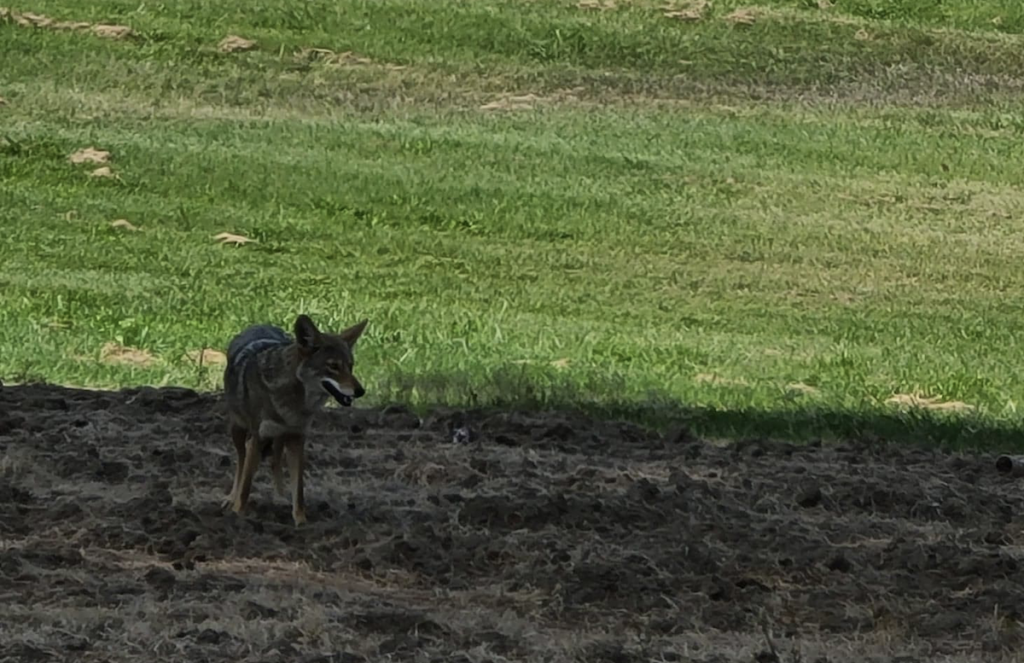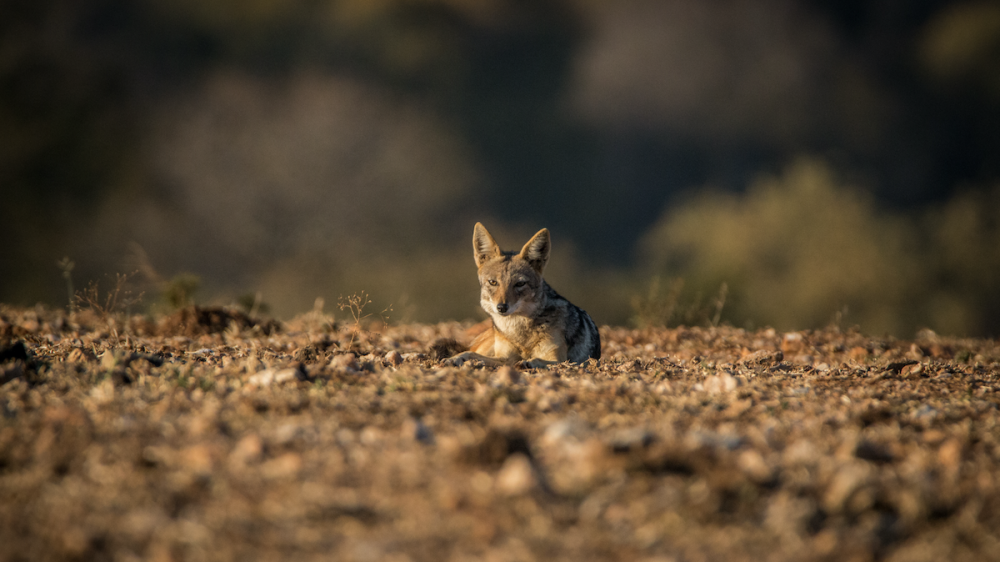Newsflash! We have “urban coyotes“! With the beautiful backdrop of Black Diamond Mines Regional Park & Contra Loma Regional Park and all of our trails meandering through the City it shouldn’t be a great shock to see a coyote here and there in residential areas as access is so easy. Yes, they come out during the day, in the evening, and at night – foraging for food is not time-specific.
Residential areas provide habitat (food, water, shelter and space) for coyotes. Plentiful food sources exist such as mice, rabbits, squirrels, and gophers. Urban coyotes have also learned to take advantage of the ample human-associated foods, such as garbage, pet food, birdseed, and compost piles. Some coyotes have also learned that unattended pets are an easy food source. Shelter and water can be found in parks, yards, and natural areas.

The availability of their natural food sources and ample access to garbage, pet food, and bird feeders attracts coyotes to our neighborhoods. In addition, some residents illegally place food out for other wildlife such as turkeys or community cats, which compounds the problem. Some coyotes have also discovered pets are easy prey.
- Keep food sources at bay.
- Weigh down your trash cans, don’t let garbage overflow.
- Don’t leave food out for your pets, community cats, or other wildlife.
- Keep your pets in at night.
- Secure coops & cages. Pools, ponds, and fruit trees are the number 1 attractants for small wildlife that coyotes prey on, create barriers or fencing to keep predators out.
What to do if you Run into a Coyote

Do not run or turn your back on a coyote. Be as big and loud as possible. Wave your arms, clap your hands, and throw objects at the coyote. Shout in a loud authoritative voice. If the coyote does not leave the area, face the coyote and slowly back away.
Keep your pets up to date on their rabies vaccinations.
Who to contact if you see an Aggressive Coyote
If there is an aggressive coyote, it is acting sick/irrational or is seriously injured please call us at (925) 779-6989 and inform Fish & Wildlife at (916) 414-6464.








